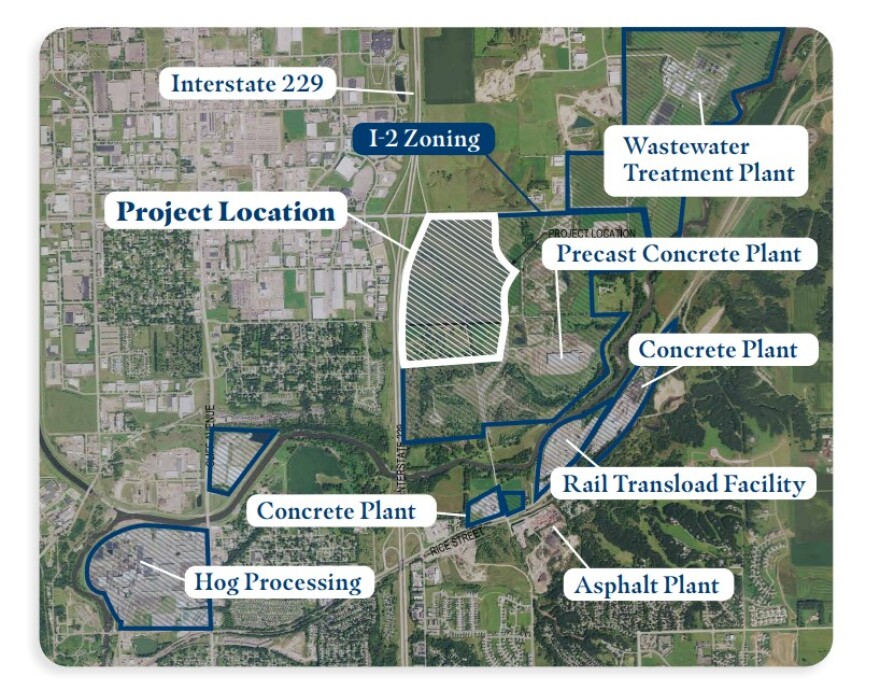A new meatpacking plant planned for Sioux Falls has regional hog farmers excited because of anticipated increases in demand for their product. The $500 million dollar project is proposed for a 170-acre tract on the northeastern side of the city.
But a November ballot measure allows Sioux Falls voters to decide if they want another such facility within city limits. The outcome of the vote could block the development.
Glenn Muller, executive director of the South Dakota Pork Producers Council, said residents need to understand the message a 'yes' vote on the ballot measure could send to industry.
"The implications of the initiated measure are extreme because it basically deters anybody from coming to Sioux Falls to develop business," Muller said.
Wholestone Farms, the company behind the new plant, is locally owned by more than 200 regional hog farmers. The company has said the facility could employ 2,000 workers and process six million hogs a year. The company intends to work in partnership with the already existing Smithfield meatpacking plant in Sioux Falls.
The campaign against the new plant is supported by Smart Growth Sioux Falls, organized by Citizens for a Sustainable Sioux Falls. The campaign says most residents who have signed a petition against the project are concerned about the potential for odor, pollution and other impacts on future development.
Eric Schoolmeester, an environmental scientist who lives in downtown Sioux Falls, signed the petition. He said the risk of more damage to the city's river is too great.
"The Big Sioux River has some of the highest fecal matter of any river in the nation, the highest E. coli river in the nation. And you're just gonna put another facility in Sioux Falls with the potential to contaminate the river even more?" Schoolmeester said.
Wholestone Farms already owns a meatpacking plant in Fremont, Nebraska.

Wholestone officials say multiple Midwestern states bid for the new development. South Dakota and Sioux Falls officials asked Wholestone to build at a proposed industrial zone in the city.
There's a reason locating the plant within city limits makes sense according to Heidi Winger, interim executive director of Ag United for South Dakota. Winger said people who want a new plant built outside of city limits are missing important details.
"Cities have infrastructure. They have water. They have planning for the traffic. They have a bus route. They have people," she said. "So, those are the resources that businesses need when you're selecting a site."
Supporters say a new pork processing plant would be very different from the existing, century-old Smithfield plant.
Evan Koep, a veterinarian with Pipestone Veterinarian Service, would oversee the health of many of Wholestone's hogs and swine.
"We're talking about 1903 era, right? Well, that was when the Wright Brothers first flew, and as we have been standing here, we just had a jet fly over us. So, technology has come a long way in the last 125 years, right?" Koep said.
Wholestone says it would install a $45 million wastewater treatment system and other new technologies to limit odors. After it's treated, the wastewater would be discharged into the Big Sioux River.

Sioux Falls resident Schoolmeester said while all that is true, the company cannot guarantee zero odor or contamination 100% of the time.
"The ease of the corporate infrastructure, I think, should take a side seat to the comfortability of citizens," Schoolmeester said.
Officials with the company said it's starting construction prior to the November ballot measure in an attempt to work around Smart Growth Sioux Falls' campaign.
In a statement, Gov. Kristi Noem said "Lt. Governor Rhoden and I fully support South Dakota value-added agriculture. This is an issue that will be decided at the local level."


